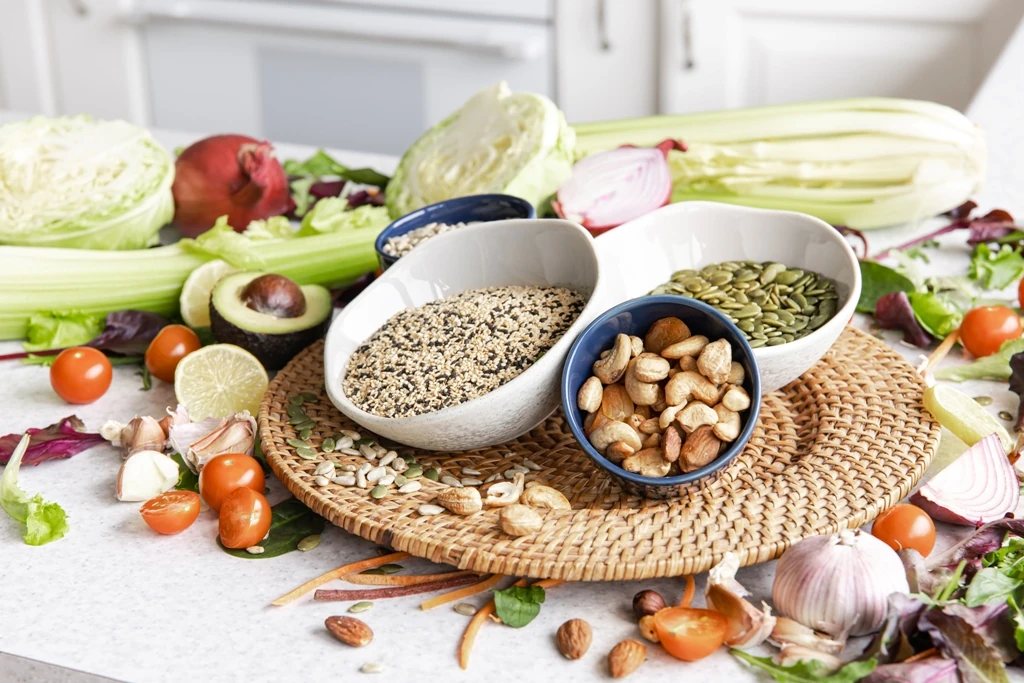There are several nutrition myths that have persisted for years, but it’s essential to separate fact from fiction to make informed dietary choices.
“Nutrition Myths Debunked: Separating Fact from Fiction – Your Guide to Evidence-Based Eating”
Here are some important nutrition myths debunked:
Myth 1: Eating Fat Makes You Fat Fact:
Consuming dietary fat alone does not make you gain weight. In fact, dietary fat is an essential nutrient necessary for various bodily functions. What matters more is the type and amount of fat you consume. Healthy fats, like those found in avocados, nuts, and olive oil, can be part of a balanced diet. Excess calorie consumption from any source, including fat, can lead to weight gain.
Myth 2: Carbohydrates Are Bad for You Fact:
Carbohydrates are a vital energy source for the body. The key is to choose complex carbohydrates, such as whole grains, fruits, vegetables, and legumes, over refined and sugary carbs. Complex carbs provide essential nutrients and fiber while helping maintain steady blood sugar levels.
Myth 3: Skipping Meals Helps You Lose Weight Fact:
Skipping meals can lead to overeating later in the day and disrupt your metabolism. It’s better to have balanced, regular meals and snacks to maintain stable blood sugar levels and control hunger. Focus on portion sizes and food choices instead of skipping meals.
Myth 4: All Sugar Is Bad Fact:
Not all sugars are created equal. Natural sugars found in whole foods like fruits and dairy come with essential nutrients and fiber. Added sugars, on the other hand, should be limited as they contribute to various health issues when consumed excessively. Check food labels for added sugars, and try to reduce their intake.
Myth 5: Gluten-Free Is Healthier for Everyone Fact:
A gluten-free diet is essential for people with celiac disease or gluten sensitivity. However, for those without these conditions, there’s no evidence that going gluten-free provides health benefits. Many gluten-free products are actually less nutritious and higher in sugar and unhealthy fats.
Myth 6: Eating Late at Night Causes Weight Gain Fact:
It’s not when you eat but what and how much you eat that affects weight gain. Late-night snacking can be problematic if it leads to overeating or poor food choices. Focus on portion control and the overall quality of your meals throughout the day.
Myth 7: Organic Foods Are Always Healthier Fact:
Organic foods may reduce your exposure to pesticides, but they aren’t necessarily more nutritious. Nutrient content can vary widely based on factors like soil quality and farming practices. It’s essential to prioritize a balanced diet with plenty of fruits and vegetables, whether they’re organic or conventionally grown.
Myth 8: Detox Diets Remove Toxins Fact:
The human body has its built-in detoxification system involving the liver and kidneys, which efficiently remove toxins. Most detox diets and cleanses are not scientifically proven to enhance this process and can lead to nutrient deficiencies and health risks.
Myth 9: All Supplements Are Safe and Effective Fact:
Supplements should not replace a well-balanced diet. While some supplements can be beneficial when prescribed by a healthcare professional, taking excessive or unnecessary supplements can be harmful. Always consult with a healthcare provider before starting any supplement regimen.
It’s crucial to base your dietary choices on scientific evidence and individual needs rather than falling for common nutrition myths. A balanced diet, portion control, and mindful eating are key principles for maintaining good health. Consulting with a registered dietitian or healthcare professional can provide personalized guidance for your nutritional needs.










